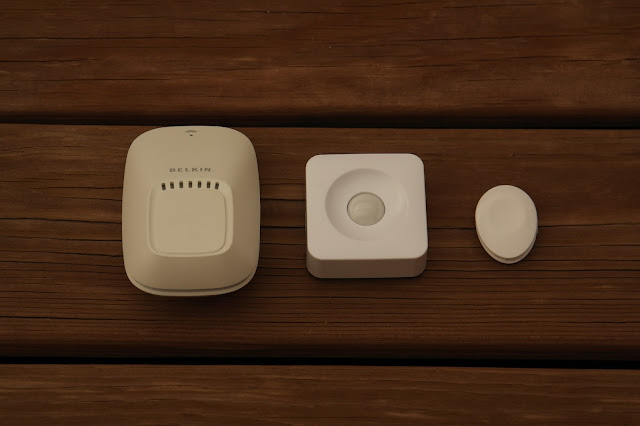Stuff. Small stuff.
Really, it's not the Internet of Things (or Stuff), but the Internet of Small. And it can all be blamed on Moore's Law: more computing in smaller spaces consuming less electricity means processing can be fitted into more... things.But why, you may ask, does anyone want to fit computing/processing/connecting into things? There are two basic answers:
- Because it allows those things to react to changes in their environment. They can turn on or off based on the presence of a particular smartphone or changes in the time of day or temperature or motion. Some can change color or alert us. Others can warm up or cool down. By adding Systems-On-a-Chip (SOC) to everything from cars to toothbrushes, they can react to these changes so that we don't have to waste our precious grey cells telling them to do things that are obvious to us.
- Because it is marketable to connect stuff to the web. People like to buy things that connect because it makes them feel 'cutting edge'. More importantly, it allows manufacturers (and even less scrupulous entities) to gather information on how you use their things so that they can do a better job of making the next generation (really market more accurately to you). Or selling you timely refills.
Stuff. Connected stuff.
- Changes in its environment, so it needs to be connected to sensors. Then it can turn on automatically when the room gets dim.
- Changes in occupancy, so it needs to be connected to the local network. So it will only turn on in a dim room when someone is actually in it.
- Changes in owner desires, both at home and abroad, so it needs to be connected to the larger internet. So parents can turn off the bedroom light that the child left on (again), having overridden all of the dim-room/occupancy BS set by the parents.
Stuff. (Semi) Secure Stuff.
The catch is, that if we connect our home up to allow us to do these things, what's preventing others from doing it to our home as well? IoT security, especially non-enterprise, consumer grade security is currently an open question in the Internet of Things. Much can be solved by changing the default passwords and other settings on both the home Wi-Fi router, smarthome hubs, or locks. But not all. Not to worry, though. Any determined thief can still get into your house by de-fenestrating some hardened sediment.
Stuff. So. Much. Stuff.
But locks and lights and thermostats and smoke detectors and window sensors are only the beginning of all this. Industry is using IoT to do inventory control and monitor manufacturing and employees, everything with sensors and every sensor connected. And if we can track an employee, why not track the state of the office coffee pot? Or your fish at home? Or your plants?
Everything in the developed world is slowly getting connected via bluetooth, mesh-networks and, ultimately, to the internet. So many things. So much stuff. All connected. All sensing. What will we do with all of this data?
It's enough to make you want to hug your teddy bear. You know, the one that's connected to your therapist.
That's it for ground work. Next week, some actual opinion on current state stuff.

No comments:
Post a Comment